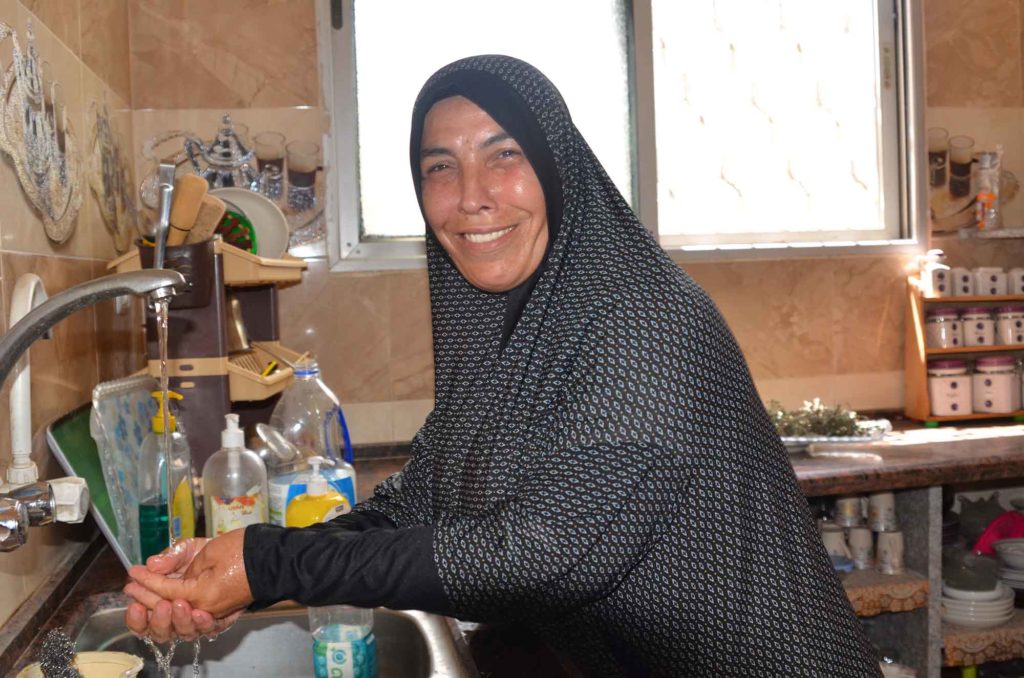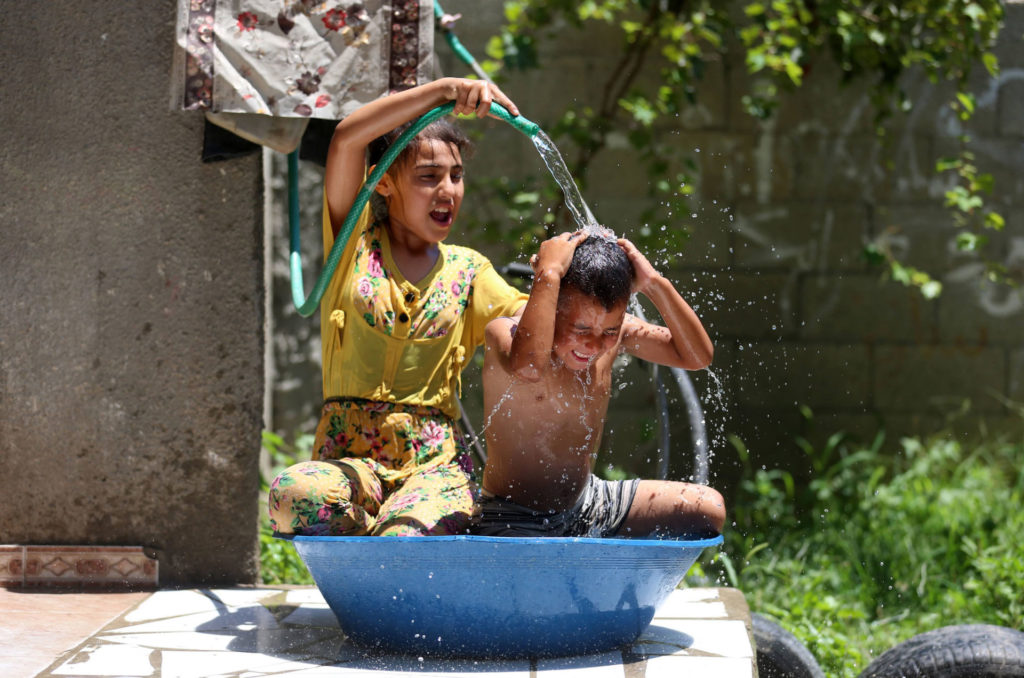Dec, 2016
The deteriorating health and living conditions caused by raw sewage and overflowing cesspits in Alaa's neighborhood left him unable to protect his family.
It was dark inside Alaa Abu Shaab’s small house in Bani Shaila, a neighborhood of Khan Younis, Gaza. A narrow stream of light came in through the curtains, where Alaa, his wife Asmaa and their three children sat huddled on the floor.


I’ve been living here for 35 years. I’ve gotten used to electricity outages.
“I’ve been living here for 35 years. I’ve gotten used to electricity outages,” Alaa shrugged. But what really bothered Alaa was the deteriorating health and living conditions caused by raw sewage and overflowing cesspits in his neighborhood.
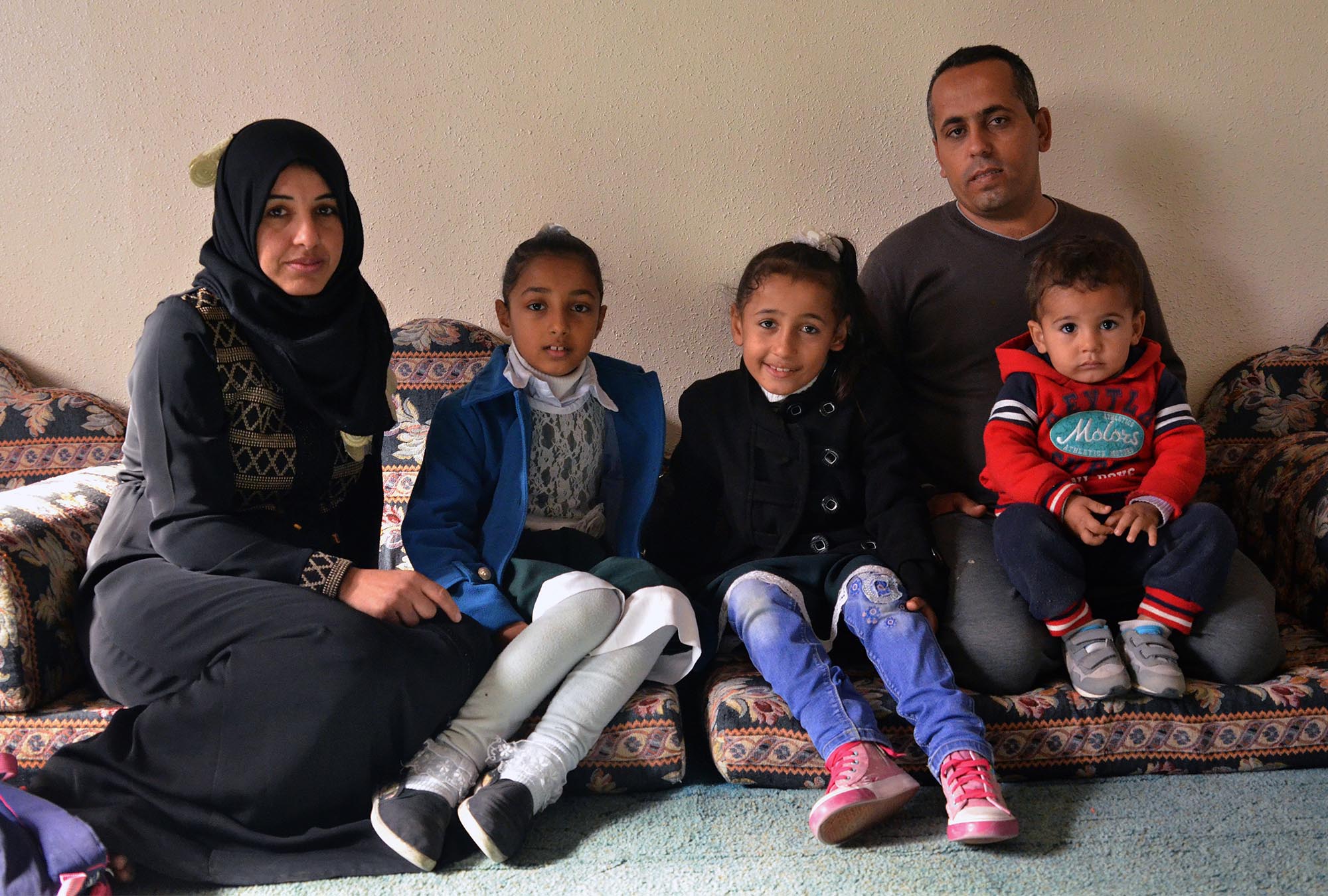

In Gaza, Sewage Fills Homes and Streets
Without a proper sewage system, the families in Bani Shaila rely on cesspits at homes to dispose of wastewater. Once filled, families have to pay to have the waste emptied into municipality tanks. But this costs $15 per month and trucks are not always available to pick up the waste.
When he can’t afford to have the cesspits emptied, Alaa has to discharge the waste to an olive grove nearby. In the winter, heavy rains often cause the cesspits to overflow, filling streets and homes with raw sewage.
“The sewage brought flies which would bite the children at night, causing them to itch. And the smell was awful,” Alaa said. The waste also attracted rats and other rodents that carry diseases. So, Alaa was thrilled when Anera selected his neighborhood for the installation of a new sewage system.
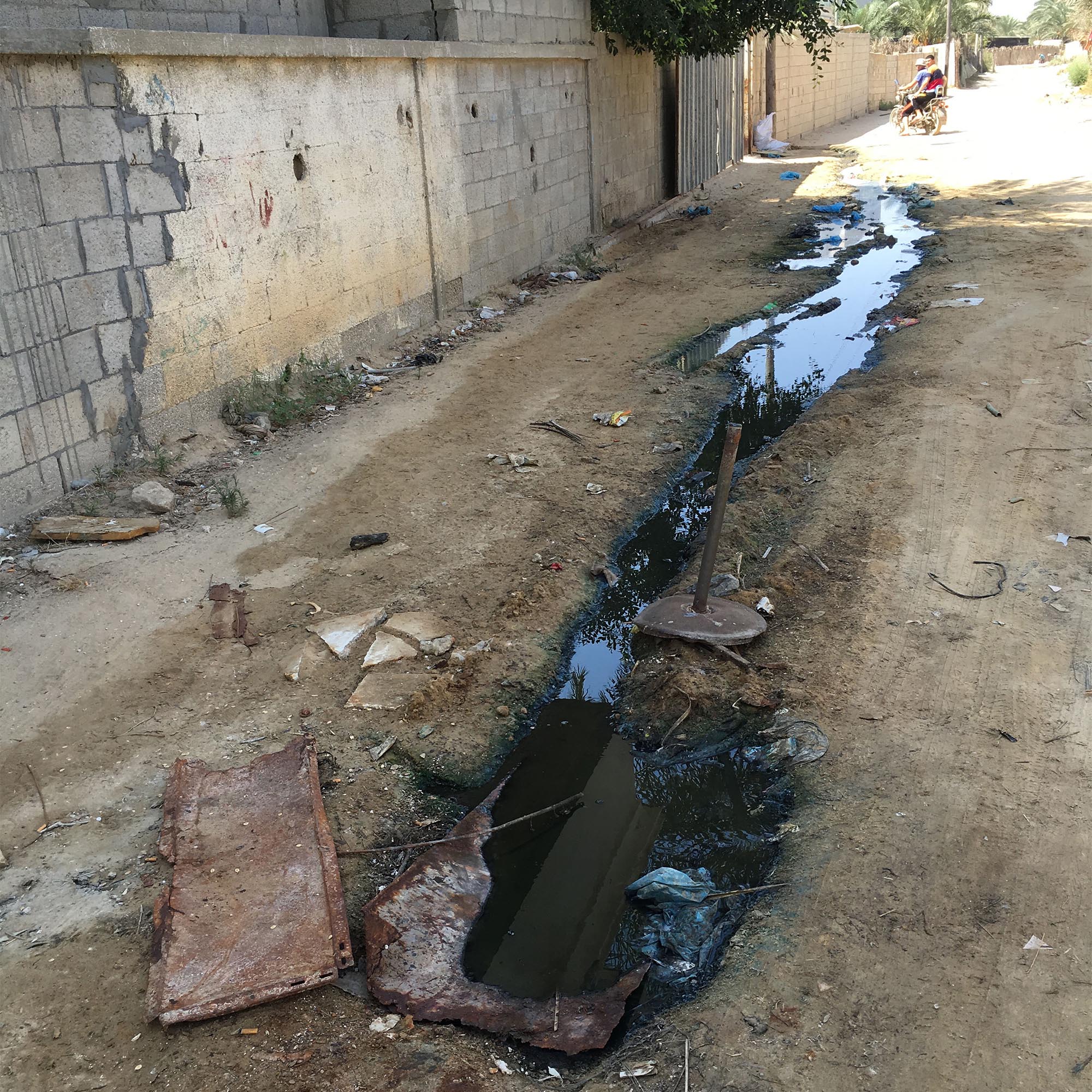

Living Conditions Improve with New Sewage Systems
With support from Islamic Relief USA, Anera recently installed seven Gaza sewage and water networks in Gaza City, Shejaiya, Zawayda, Deir El Balah and Bani Suhaila – where Alaa and his family live.
“This was truly an end to the days of suffering,” Alaa said. Now, he is able to save money that he used to spend on sewage collection. And most importantly, his family can live with dignity in their home.
“We’re glad the kids can play outside safely,” added Asmaa, with a sigh of relief.
Since the beginning of the project in 2015, Anera has helped nearly 32,000 residents through improved access to water and sewage systems across Gaza. Anera also distributed 3,200 hygiene kits and held 60 awareness sessions, funded by Islamic Relief USA, to help families maintain healthy practices in the home.
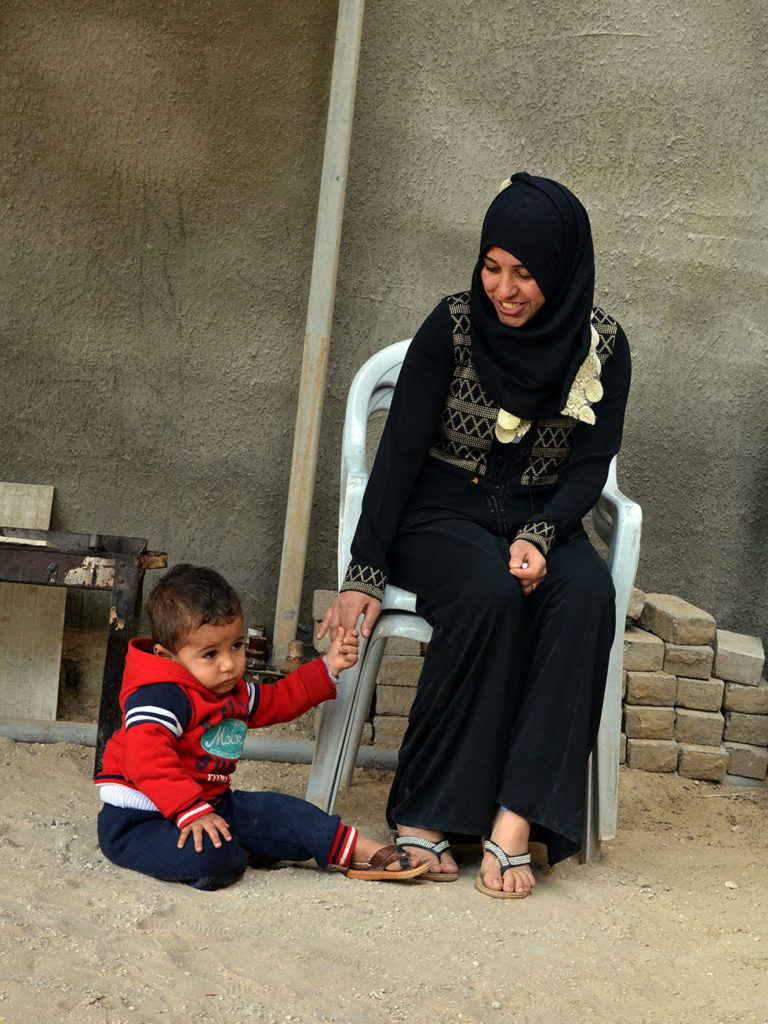

Promoting Key Health & Hygiene Messages
In a survey taken prior to the project implementation, Anera’s public health officer in Gaza discovered that 35% of participants had at least one child below the age of five who had contracted diarrhea in the past two weeks.
Ailments like diarrhea are often exacerbated by poor hygiene practices. So, in tandem with connecting families to proper sewage systems, Anera provided health awareness sessions to teach parents about the importance of personal and household hygiene.


“It’s still dark, but the horrible sewage is gone. We can enjoy the light outside and the air coming through the windows.”
Asmaa attended the session and learned a lot about how to protect her family. “I was reminded to wash our children’s hands frequently,” Asmaa explained. “We live in an old and overcrowded city, so it’s a must to keep them healthy.”
She also passed on vital information to her husband. “I’d never given a thought to cleaning the storage tanks we use for domestic water until my wife told me about the harm it can cause,” Alaa said. “As soon as I heard about the dangers, I jumped onto the rooftop right away to clean it. I’m glad I did because I found layers of dirt and algae on the bottom of the tank.”
Now Alaa and Asmaa are feeling more hopeful about their situation. While taking a sip of tea, Alaa suddenly smiled. “It’s still dark, but the horrible sewage is gone. We can enjoy the light outside and the air coming through the windows.”

